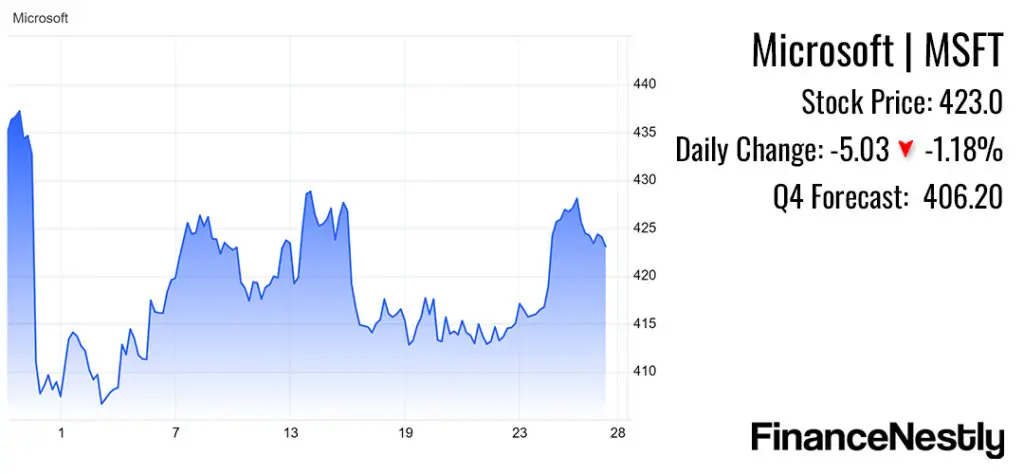FTC Launches Antitrust Investigation Into Microsoft as Lina Khan Faces Key Test
The Federal Trade Commission (FTC) has initiated an antitrust investigation into Microsoft, marking a pivotal moment for Chair Lina Khan’s tenure and her ongoing efforts to challenge the dominance of Big Tech. Bloomberg reported late Wednesday that Khan personally approved an extensive information request sent to the tech giant, with FTC lawyers set to meet with Microsoft’s competitors next week to gather further evidence.
While the U.S. stock markets were closed for Thanksgiving, early indicators suggest this investigation is unlikely to significantly impact Microsoft shares. Analysts point to the FTC’s limited success under Khan in restraining large technology firms and her anticipated replacement as reasons for muted market reactions.

The FTC’s Record Under Lina Khan
Since becoming chair in June 2021, Khan has aggressively targeted tech behemoths such as Microsoft, Meta Platforms, and Amazon.com. Her efforts include attempting to block Microsoft’s merger with Activision Blizzard, which ultimately succeeded despite the FTC’s opposition. Similarly, her attempt to prevent Meta from acquiring a virtual-reality startup also fell short. However, the FTC managed a rare win when Amazon abandoned its planned acquisition of iRobot, the Roomba maker, following an FTC lawsuit.
Analysts like Hargreaves Lansdown’s Matt Britzman suggest that investigations like these have become a routine part of being a dominant player in the tech industry. “For a tech giant of its size, scrutiny like this is almost a badge of honor, a sign of dominance that inevitably draws regulators’ attention,” Britzman said.
A Broader Crackdown on Big Tech?
The Biden administration’s approach to Big Tech has faced criticism for lacking consistency and impact, with many observers seeing this latest effort as a symbolic gesture rather than a substantive shift. Earlier this month, the Department of Justice filed a case against Microsoft rival Google, suggesting that the search giant should divest its Chrome browser to dismantle its search monopoly. These moves hint at a broader effort to challenge entrenched power structures in the tech sector, even as the administration nears the end of its term.
A Turning Point for Tech Regulation
Khan’s tenure has illustrated the challenges regulators face when confronting trillion-dollar corporations with vast legal and lobbying resources. The FTC’s latest move against Microsoft could be its final significant action under her leadership, with implications not only for the company but for the future of antitrust enforcement in the U.S.
Whether this investigation signals a genuine turning point or another missed opportunity will depend on its scope and outcomes. As the FTC gathers information and the political landscape shifts, the question remains: Can regulators truly level the playing field in an industry that continues to outpace traditional oversight mechanisms?
By examining these issues, the Microsoft case may become a bellwether for the next chapter in U.S. antitrust policy.
Khan’s tenure has illustrated the challenges regulators face when confronting trillion-dollar corporations with vast legal and lobbying resources. The FTC’s latest move against Microsoft could be its final significant action under her leadership, with implications not only for the company but for the future of antitrust enforcement in the U.S.
Whether this investigation signals a genuine turning point or another missed opportunity will depend on its scope and outcomes. As the FTC gathers information and the political landscape shifts, the question remains: Can regulators truly level the playing field in an industry that continues to outpace traditional oversight mechanisms?
The investigation also raises broader questions about the role of government oversight in an era where technology companies have become essential to every aspect of modern life, from communication to commerce. Critics argue that regulatory agencies, including the FTC, are under-resourced and outmatched by the financial power and technical expertise of the corporations they are tasked with policing. This asymmetry has allowed Big Tech firms to consolidate power with limited accountability, making meaningful enforcement a daunting challenge.
Moreover, the case against Microsoft could set a precedent for how future administrations approach antitrust actions in the tech sector. If the FTC’s efforts fail once again, it could embolden other tech giants to continue aggressive expansion strategies without fear of significant consequences. On the other hand, a successful investigation might reinvigorate public trust in regulatory institutions and send a strong message to the industry about the limits of unchecked dominance.

